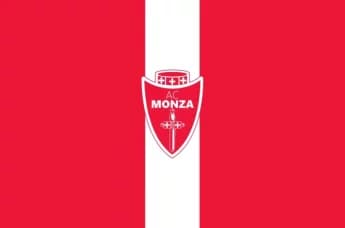With a strong heritage and dedicated support, Werder Bremen stands as a pillar of German football, continually striving for success while nurturing homegrown talent and embracing their unique cultural identity.
Founded on February 4, 1899, Werder Bremen stands as one of the most esteemed football clubs in Germany, located in the Free Hanseatic City of Bremen. The name 'Werder' comes from the German word for 'river peninsula,' highlighting its roots in the green fields along the city's rivers. The club boasts an impressive history in German football and is a competitor in the Bundesliga, which is the premier league of Germany. They share the distinction of having played the most seasons in the Bundesliga alongside Bayern Munich, establishing them as a prominent force in the league. The cultural significance of the club is woven into the community of northern Germany, supported by strong local backing and a historic rivalry with Hamburger SV from Hamburg, known as the Nordderby.
Their journey has been characterized by periods of strong performance and an unwavering commitment to excellence. Renowned for their passionate fanbase and focus on development, Werder has also expanded into other sports such as athletics and baseball, reflecting their comprehensive dedication to sporting achievement. Their enduring presence in the Bundesliga is a testament to their consistent competitiveness and significant cultural role in German football.
Weserstadion, the club's legendary home since 1909, represents the unity and fervor of Werder Bremen. With a seating capacity exceeding 40,000, it serves as a lively venue for their historic accomplishments. Throughout the years, Werder has not only played a crucial role in the success of German football but has also been pivotal in fostering the development of local sports culture, earning Bremen the title of a genuine sports city. The club's capacity to remain pertinent in the face of competition from other German giants such as Bayern Munich and Borussia Dortmund showcases their steadfast resilience and love for the sport.
Werder's football journey has been marked by both triumphs and challenges, yet their strong traditions of teamwork, perseverance, and loyalty have ensured their continued relevance for over a century. Today, they are a club brimming with ambition, eager to enhance their already remarkable legacy while preserving their identity as a club for the people. Their rich history serves as a foundational element that continues to motivate new generations of fans.
Accomplishments of the Team
The illustrious history of Werder Bremen is marked by a number of key trophies and milestones that have defined their status as one of the leading football clubs in Germany. Their journey to success began with their first major title, the DFB-Pokal in the 1960–61 season, which set the stage for further achievements in subsequent decades. Werder has secured the German championship four times, with their latest triumph occurring in the 2003–04 season when they accomplished the remarkable feat of winning both the Bundesliga title and the DFB-Pokal. This extraordinary double victory showcased their supremacy in German football at that time.
Alongside their league victories, Werder has achieved notable success in domestic cups, having lifted the DFB-Pokal on six occasions. Their last triumph in the cup came in the 2008–09 season, which signified the conclusion of a powerful period in domestic competitions. The club has also won the DFL-Supercup three times, reinforcing their status as reliable contenders in Germany's top football tournaments. Their ability to adapt and perform across various competitions has garnered them respect both on a national and an international scale.
Werder Bremen's achievements in European competitions are highly commendable. In 1992, they claimed victory in the European Cup Winners’ Cup, a significant accomplishment where they faced some of the best teams in Europe. Furthermore, they finished as runners-up in the UEFA Cup, now known as the Europa League, during the 2008–09 season, highlighting their sustained presence in European football. These international ventures represent a proud part of Werder Bremen’s legacy, showcasing their capacity to compete at the highest levels in both domestic and European tournaments.
Werder Bremen's remarkable legacy is underscored by the club's sustained success in German football and its competitive presence in European tournaments. These accomplishments not only foster pride among current supporters but also motivate future generations of players and fans, ensuring the club remains a significant part of German football's rich history.
Strengths and Weaknesses
Werder Bremen is a club filled with significant potential, but like many football teams, they possess both strengths and weaknesses. A major strength lies in their long-standing tradition of developing homegrown talent and successfully integrating these players into the first team. Their focus on youth development has remained crucial for staying competitive in the constantly evolving football world. Additionally, the club’s devoted fanbase creates a considerable advantage, transforming the Weserstadion into a formidable stronghold where opponents find it challenging to claim victory.
Even with these advantages, Werder has faced challenges with consistency in recent years, particularly within the Bundesliga. Their struggle to sustain a high level of performance throughout the entire season has occasionally made them susceptible to the dominance of clubs like Bayern Munich and Borussia Dortmund. There have been times of underachievement, particularly following their last significant successes in the 2000s, resulting in instances of relegation and close calls with the relegation zones. This inconsistency remains a core issue for the club, necessitating a balance between their aspirations and the harsh realities of competing against financially stronger teams in German football.
Werder Bremen has frequently faced criticism for their defensive weaknesses, which hinder their ability to compete against the league's elite teams. Although they possess a well-balanced attack when performing at their peak, their lack of a solid defense has often cost them in crucial matches. The current team is in the midst of developing a reliable defensive line capable of handling the challenges presented by both the Bundesliga and international play. Addressing this concern is essential for the club to reclaim its former levels of success.
A significant drawback for the club is its financial status. Although Werder Bremen boasts a rich heritage, it does not rank among the wealthiest clubs in Germany. Competing against financially powerful teams like Bayern Munich, which can frequently invest in elite players, poses a challenge for Werder. Nonetheless, their ability to withstand challenges has allowed them to remain competitive in the Bundesliga, and with prudent management, they can continue to exceed expectations.
Tactical Approach & Playing Style
Werder Bremen's tactical philosophy has consistently revolved around a combination of attacking play and structured defensive organization. Traditionally, they have been recognized for their swift, counter-attacking strategy, making use of the flanks to create width and take advantage of the opponent's weaknesses. This approach is well-suited to their offensive players, who frequently aim to capitalize on gaps through quick transitions from defense to offense. In more recent seasons, however, they have adopted a more possession-oriented style, emphasizing the importance of dominating the midfield to control the flow of the game.
In recent seasons, Werder has adopted a more adaptable tactical approach, modifying their formation depending on the opponent and the context of the match. The squad frequently utilizes a 4-3-3 or 4-2-3-1 formation, focusing on fluid attacking transitions. Wing play is vital to their offensive tactics, with full-backs advancing up the field to assist wingers and create numerical advantages. This attacking framework is supported by a midfield that aims to connect play, providing assistance to both the defense and the forwards.
In recent seasons, Werder has faced defensive challenges, frequently employing a high pressing strategy. While this approach can be effective in certain situations, it sometimes exposes them to counter-attacks from faster and more efficient opponents. The team's central defensive duo is critical, as they must ensure stability and organization to prevent opponents from taking advantage of defensive lapses. A key area of improvement lies in the team’s ability to transition seamlessly between attacking and defensive phases, striving to strike a balance between ambition and caution, particularly in away matches.
As the team progresses, Werder aims to enhance their defensive strength while preserving the attacking creativity that has defined their achievements. By finding the right equilibrium, Werder can once again vie with the leading teams in the league.
Iconic Matches
Over the years, Werder Bremen has participated in numerous memorable matches that have significantly shaped the club’s history. One notable instance was the final of the 1992 European Cup Winners' Cup, where they triumphed over AS Monaco to secure their first major European championship. This victory signified the beginning of a prestigious period for Werder, affirming their status as a competitive force in European football. The match exemplified the club’s determination and capacity to excel under pressure, showcasing their tactical discipline and precise finishing that led to a monumental victory.
Another memorable match took place during the 2003–04 Bundesliga season when Werder Bremen accomplished the extraordinary achievement of winning the double. On the final day of the league, they triumphed over Bayer Leverkusen to clinch the Bundesliga title, and this victory was soon followed by another win in the DFB-Pokal. The combination of these two achievements marked Werder’s height as one of the leading teams in German football during the early 2000s, making this season a crucial chapter in the club's history.
The 2008–09 UEFA Cup campaign was particularly memorable, as Werder advanced to the final, where they faced a narrow defeat against Shakhtar Donetsk. Despite this setback, their path to the final included exhilarating victories, notably a suspenseful semi-final triumph over Hamburg. This run demonstrated Werder's ability to compete with Europe’s top teams, reinforcing their status as a formidable contender on the international stage.
Moreover, the club's fierce rivalry with Hamburger SV has resulted in numerous memorable matchups. The Nordderby, regarded as one of Germany's most intense rivalries, has seen Werder come out victorious in a number of iconic encounters. These matches are always filled with passion, representing the pride of northern German football and the fierce contention between the two clubs.
Looking Ahead
The outlook for Werder Bremen is bright, emphasizing youth development and strategic rebuilding. Following several years of inconsistent performance, the club’s management is dedicated to establishing a sustainable and competitive team capable of contending for both domestic and international titles. Their youth academy, which has produced players who have gone on to represent both Werder and other elite clubs, will continue to play a crucial role in their future plans. This commitment to nurturing young talent not only enhances the squad but also preserves Werder’s footballing philosophy for future generations.
The club aims to re-establish itself as a prominent competitor in European tournaments. Their performances in domestic cups and the Bundesliga have highlighted their potential for success, and with the right investments in squad depth and tactical strategies, Werder could soon be contending in the Champions League once more. Maintaining a strong position in the upper league standings is vital for their development, as ongoing success in the Bundesliga will create more opportunities to compete in Europe.
Off the pitch, Werder Bremen is actively enhancing its financial stability by forming strategic alliances, pursuing sponsorship agreements, and investing in infrastructure upgrades. The Weserstadion, their home ground, continues to be a vital asset that plays a key role in their long-term development strategies. By modernizing facilities and increasing fan engagement, the club aims to secure its future sustainability and boost its competitiveness in the rapidly changing football environment.
In the future, Werder Bremen's combination of tradition, ambition, and growth could spark a revival in both domestic and European football. Their esteemed history and dedicated fanbase will play crucial roles in their pursuit of future success. If they maintain their current trajectory, Werder Bremen has the capacity to compete once again for major titles and solidify their status as one of Germany's premier football clubs.







